Why do many schools "reject" the C00 combination?
On June 6, the Ministry of Education and Training issued an official dispatch requesting all universities to review their admission methods and combinations to ensure fairness and not affect the rights of candidates. If there is any change in the admission methods or combinations, an explanation must be provided.

Illustration photo.
This move was made after public opinion reacted to the announcement by the University of Social Sciences and Humanities, Vietnam National University, Hanoi, to remove the C00 combination (Literature, History, Geography) for 17 majors such as Journalism, Sociology, Psychology, etc.
Previously, a series of other universities also stopped recruiting for this combination, such as the University of Law ( Hanoi National University), Academy of Journalism and Communication, Hanoi Capital University, Hanoi University of Procuracy, etc.
According to Dr. Le Dong Phuong, former director of the Center for Higher Education Research (Vietnam Institute of Educational Sciences), in recent years, the admission scores for majors using the C00 combination have been surprisingly high. However, because universities are allocated quotas according to each admission combination, even though C00 has a high admission score, it still does not affect candidates using other combinations.
However, this year's admission regulations do not distinguish the quota for each combination, so C00 and other combinations are equal in terms of standard scores. This makes many universities worry that training programs will be flooded with candidates for this combination. Meanwhile, there are still many concerns that the scores for Literature, History, and Geography do not reflect the thinking ability of candidates.

Dr. Le Dong Phuong, former director of the Center for Higher Education Research (Vietnam Institute of Educational Sciences)
When balancing the conditions, many universities announced the removal of the C00 combination within 30 days before the exam. In terms of autonomy within the framework of the law, the universities were not wrong, but this decision affected many candidates who had chosen the C00 combination.
If in the 2006 program students studied all subjects, in the 2018 general education program, they have to choose subjects 3 years in advance and not all subjects are studied. Therefore, a change at this time will make candidates unable to react in time.
After the Ministry of Education and Training blew the whistle, the University of Social Sciences and Humanities resumed admission to the C00 group to ensure the rights of candidates in 2025. However, Dr. Le Dong Phuong predicted that the admission and announcement of benchmark scores this year will continue to be complicated.
Is traditional combination testing outdated?
Following the current enrollment trends at leading universities in Vietnam, Associate Professor Dr. Pham Manh Ha, senior lecturer at the University of Education, Vietnam National University, Hanoi, feels “sad” when the traditional C block - which is the foundation for majors such as journalism, psychology, sociology - is gradually being replaced or ranked behind the D block (Math, Literature, Foreign Languages). Although explained by the requirements of “globalization” or “analytical skills”, this trend is silently eroding diversity in thinking and, more worryingly, risks increasing inequality of opportunity for many students.
It is undeniable that equipping students with foreign languages (usually English) and quantitative analysis skills (through Mathematics) is necessary, but Mr. Ha is concerned that the absolute role of block D and the disregard or even elimination of block C may ignore the depth and unique values that the subjects of Literature, History, and Geography bring - that is, a thorough understanding of the culture, history, and social changes of the country, which is the core foundation for forming social scientists with identity and depth.

Associate Professor, Dr. Pham Manh Ha, senior lecturer, University of Education, Vietnam National University, Hanoi
In addition, gradually "closing" the door to block C not only deprives students with special qualities and passion for pure social sciences, but also deals a heavy blow to efforts to narrow inequality.
“In disadvantaged areas, where the conditions and costs for accessing high-quality foreign language learning remain a huge barrier, do students still have the opportunity to compete fairly in the fields of study in which they are supposed to have strengths? Are we inadvertently creating a “race” in which the advantage is tilted towards students with better economic conditions, instead of truly seeking diverse talents for the country? ”, Associate Professor Dr. Pham Manh Ha expressed his opinion.
According to Associate Professor Dr. Pham Manh Ha, the university admission system in Vietnam has long been based on traditional exam blocks such as block A (Math, Physics, Chemistry), block B (Math, Chemistry, Biology), or block C (Literature, History, Geography). However, this approach is revealing many limitations in the context of modern education.
Admission based on traditional exam blocks often does not fully reflect a student's ability for a specific field of study. For example, a student who wants to study journalism does not necessarily need to be good at Math (block D), but needs to have writing skills, critical thinking and international communication skills.
However, the current admission process can eliminate potential students because they do not do well in the subjects in the prescribed combination. On the contrary, some students who score high in traditional subjects do not match the actual requirements of the major, leading to the situation of dropping out or not meeting the output standards.
Is it time for a new admissions model?
According to Associate Professor Dr. Pham Manh Ha, to meet the demand for training high-quality human resources, it is necessary to change the admission thinking, focusing on the training goals and output standards of each major, instead of depending on traditional general high school subject combinations.
Accordingly, universities need to develop admission criteria based on the training objectives of each program. For example, psychology majors may require students to demonstrate data analysis skills (through statistical tests) and empathy skills (through essays or interviews).
The IT industry can test logical thinking and programming skills instead of just relying on Math, Physics, and Chemistry scores. This approach not only helps select the right students with the right abilities but also encourages diversity in thinking and skills, better meeting the needs of the labor market.
To do this, universities need to coordinate with education management agencies to design specialized competency tests, combined with high school graduation exams. At the same time, it is necessary to raise awareness among students and parents about the importance of choosing a major based on their strengths and career goals, instead of following traditional exam blocks.
Associate Professor Dr. Pham Manh Ha also suggested a new admission model based on necessary and sufficient conditions.
The prerequisite is a minimum cultural background. This is the basic entry threshold that all future students need to have, regardless of their field of study. The prerequisite will be based on the results of the High School Graduation Exam – the most common and feasible measure today. Accordingly, candidates need to achieve a certain minimum score (for example: 6.0/10) in fundamental subjects such as Mathematics, Literature, History and Foreign Languages.
The sufficient conditions are specialized capacity and interdisciplinary qualities. According to Mr. Ha, after passing the "Need" threshold, candidates will be considered for admission based on their capacity suitable for the field of study. This part includes two factors:
(1) Professional knowledge: Admission is based on a combination of core subjects of the major (for example: Math-Physics-Chemistry for engineering majors; Literature-History-Geography for journalism majors).
(2) Interdisciplinary requirements (constraints): Instead of requiring competitive scores, this model only requires a floor threshold. For example, students taking the entrance exam for Mechanical Engineering with the A00 combination must have a score of 6.0 or higher in Literature or History. Because an engineer needs to be able to present ideas, write reports, and understand the social context of the products he creates.
Students take the entrance exam for Psychology with the C00 combination, but must have a score of 6.0 or higher in Math and English. Because a psychologist needs quantitative data analysis thinking and the ability to read and understand international research documents.
Many schools have stopped considering admission to the C00 combination.
Associate Professor Dr. Pham Manh Ha explained that the core philosophy of this model is the clear distinction between "fundamental capacity" and "specialized excellence".
“Requiring a social science student to have a minimum score in Math is not to turn them into mathematicians, but to ensure they have basic logical thinking. Similarly, an engineer needs to have a ‘satisfactory’ level of expressive ability, not necessarily a writer,” said Mr. Ha.
This model helps to “calibrate” the importance of each subject to each specific profession, avoiding the use of one-size-fits-all standards. It also reflects the reality of lifelong learning: more specialized skills can be developed during university and work, depending on actual requirements.
This model helps universities select students who are truly suitable, with both specialized qualities and necessary complementary skills, reducing the number of students dropping out of school due to choosing the wrong major. At the same time, it creates a fairer opportunity for students from all regions and with different strengths.
Meanwhile, Dr. Le Dong Phuong said that the Ministry of Education and Training and higher education institutions need to sit down and carefully analyze the score distribution of all subjects, and even standardize exam scores to find a "filter" to select worthy candidates.
On the other hand, there needs to be innovation in teaching methods and exam questions for subjects that are traditionally labeled as memorization, such as Literature and History, in order to not only test knowledge but also assess students’ ability to understand knowledge and analyze data and facts. Dr. Le Dong Phuong affirmed that this is necessary, but the change process needs more time.
Source: https://vtcnews.vn/truong-dai-hoc-khuoc-tu-c00-to-hop-truyen-thong-da-loi-thoi-ar948813.html









































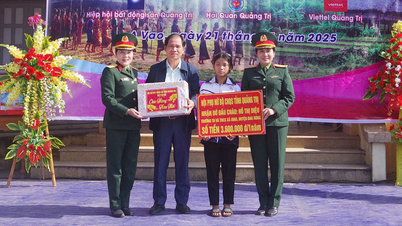





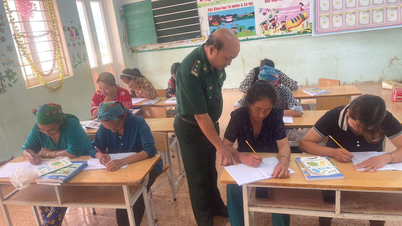











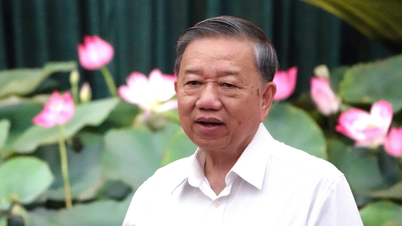











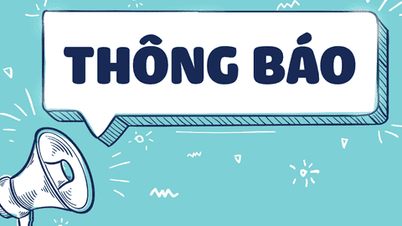



























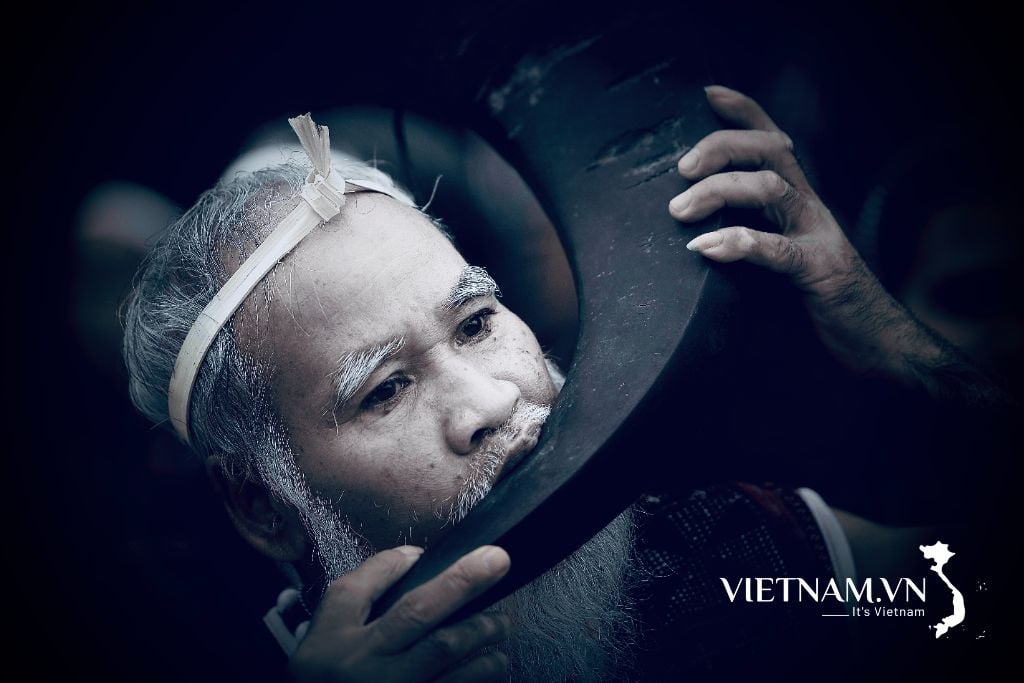

Comment (0)